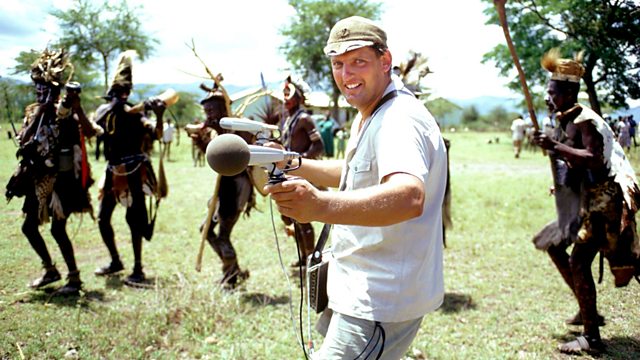The World in His Ear
Music writer Philip Sweeney finds out about the pioneering and controversial music figure David Fanshawe and delves through his archives of field recordings from across the globe.
When composer, David Fanshawe died last year he left behind a myriad of field recordings and a rich portfolio of composition, including his magnum opus, African Sanctus.
In 'The World In His Ear' music writer, Philip Sweeney explores the famed Fanshawe archive and finds out about a pioneering, if controversial musical figure. Speaking to composers, admirers and family members, Philip discovers a larger than life character who collected thousands of field recordings from across the globe. He recorded tribes in Africa that no longer exist and visited Pacific Islands where few, if any other travellers have trod; he even moved his family out to Fiji to be near him.
When it came to his own compositional work Fanshawe was shunned by both the classical music establishment and by the world music aficionados who were embarrassed by this eccentric figure: "Sadly people look down on him. He had a manner which seemed rather white man goes abroad and loves the African music which can seem a little bit neocolonialist" says the editor of Songlines, Simon Broughton.
Some claim he was a forefather of world music, others that he mined cultures and music that were not his to take. But the result of his lifetime's passion was to bring together the spheres of classical and traditional, western and non-western, pre-recorded and live music, long before it became popular to do so. Step in to his converted garage in Wiltshire and you are transported not only to different continents, but also to lost eras recorded and catalogued for all to hear. David Fanshawe epitomized the spirit of freedom and adventure, capturing his experiences in music and in doing so brought the whole world to the place where his music was being performed.
Producer: Gemma Newby
A Somethin Else production for Βι¶ΉΤΌΕΔ Radio 4.
Last on
Broadcast
- Tue 4 Oct 2011 13:30Βι¶ΉΤΌΕΔ Radio 4

